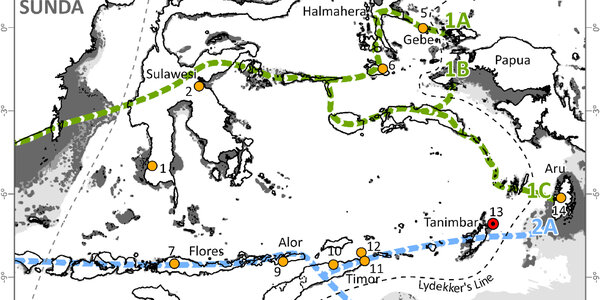Ethics And Evidence
The purpose of this article is to demonstrate how the use of selected quotes entirely out of their context has been used to 'prove' the opposite of what was said in order to promote a political agenda in the guise of science.
In a British court of law it is the duty of the lawyers to assist the court in acheiving a just result.
A lawyer is perfectly entitled to show that evidence presented in court points to a particular conclusion, but is not entitled to present false evidence or to hold back evidence in order to support a case. A lawyer who deliberately cites an extract from a document in a false context in order to bolster a case is likely to be disbarred from the practice of law.
The laws of evidence and the rules of ethics in law and in science have many parallels. I would suggest that if a scientist deliberately manipulates evidence in support of a particular theory and that fact is discovered, then the scientific community at large would be entitled to disavow that the person concerned is a scientist.
Two imaginary court cases
To illustrate my point about evidential context and ethics, I want to depict an imaginary court case. Imagine that you have flown from your home town to a major airport. You write in your notebook that the flight was quite pleasant and incident free. You then find yourself - on the next leg of the flight - being thrown around the cabin due to some problem. You suffer bruises and your camera is damaged.
In court, where you are trying to recover damages, the lawyer for the airline produces your notebook and offers it to the court as proof that the flight was without incident. By implication, the lawyer is suggesting that your claim for damages is fraudulent.
Imagine a slightly different scenario. You are travelling on a train and have arrived at an intermediate stop. You write that the journey has been relaxing and free from delays. Later, the train stops at a red light in a tunnel and is stuck for some time due to track damage. The train backs out of the tunnel, waits for clearance and then goes forward once more. The train proceeds without further incident.
In court, you are seeking damages for being left in a highly stressful state without food or water. The lawyer for the rail company produces your notebook and offers it to the court as proof that, by your own admission, the journey was relaxing and free from delays.
Would you not think that the lawyer was an unethical shyster? I know that I would.
The relevance of my argument about evidence and ethics is to a totally bogus use of documentary evidence to 'prove' that the current melting of Arctic ice is not at all unusual. I will give some background information and then refer to the offending article and then to the very few words selectively quoted by the article's authors.
The impassable North West Passage
No ship ever passed through the Arctic in one season until 1937 when the steam icebreaker Sibiryakov , with great difficulty, travelled from Arkhangelsk through the Bering Strait between June and October 1932. The first single-season journey through the North West Passage was was performed by the RCMP vessel St Roch in 1944. Previous journeys had been accomplished only by over-wintering in a ship locked up in the ice.
The search for the North West Passage was long and arduous. Many brave lives were lost in that pursuit. A number of successes in discovering possible parts of a route had been acheived by the use of ships, boats and sledge parties. In 1845, an official expedition was mounted under Sir John Franklin with the intention of completing the survey and proving the existence of a continuous sea route between Baffin Bay and Bering Strait. The Franklin Expedition was last seen by a whaler in Melville bay on July 26 1845. Ever since that date mystery continues to surround the fate of the expedition.
Various search expeditions were mounted, at first in the hope of finding survivors, later in hopes of discovering the fate of the ships and their crews. Over the years many ships were put at risk in the search, and some were lost. One of the search ships, Investigator, under command of Robert M'Clure, traversed the coast from Bering Strait via Prince of Wales Strait, named by M'Clure into the Strait named in his honor: M'Clure Strait. The Investigator became beset in ice and was abandoned. The crew completed their journey on foot. M'Clure thus became the first person to traverse the North West Passage and in doing so, the first person to circumnavigate the Americas.
The British Admiralty and Parliament eventually decided that further searches for the lost ships or attempts to navigate the North West Passage were too risky. One might say that ice conditions were so severe, and the prospects of any ship navigating the passage so remote, the cost in human lives already so terrible that the British lost heart.
The first person to navigate the North West Passage entirely by sea was Roald Amundsen, in the vessel Gjøa. So many ships before Gjøa had wintered in the ice in the hope of open water ahead the next season. All had been turned back, or sunk, by impenetrable ice.
The Gjoa had immense difficulty in travelling from Baffin Bay to Beechey Island. Beechey Island had been reached by many ships before and was considered by Amundsen as a starting-off point for further exploration.

Gjøa
The record of that voyage was written up in the book: "The North West Passage" , being a record of a voyage of exploration of the ship "Gjøa" 1903-1907 by Roald Amundsen with a supplement by First Lieutenant Hansen, Vice-Commander of the expedition. Amundsen writes in his book of one of his childhood heroes: Sir John Franklin:
Franklin and all his men laid down their lives in the fight for the North West Passage. Let us raise a monument to them, more enduring than stone : the recognition that they were the first discoverers of the Passage.
After rather hard tacking we
reached Beechey Island on August 22nd, at 9 o'clock
in the evening, and anchored in Erebus Bay.
Eventually, on Saturday,
September 12th, at 7.30 p.m., the north wind fell suffi-
ciently to permit of our venturing in with the aid of the
the engine. At 8.30 the "Gjoa" was anchored in
Gjoahavn.
The Fox Expedition
The voyage of the 'Fox' in the Arctic seas : a narrative of the discovery of the fate of Sir John Franklin and his companions"
Further reading:
http://www.hakluyt.com/PDF/Rondeau_Franklin.pdf
http://www.hakluyt.com/PDF/Battersby_Franklin.pdf
The Voyage of HMS Erebus and HMS Terror to the Southern and Antarctic Regions. Captain James Clark Ross, R.N. 1839–1843. The Journal of Sergeant William K. Cunningham, R.M. of HMS Terror.
Part
1. Introductory chapters. Historical background. The voyage&its
objectives. Magnetism&the compass. Glossary of nautical terms. [PDF: full text & illustrations. 37 pages. 625KB]
Part 2. The journal [PDF: full text, maps & illustrations. 114 pages. 2803KB]
Part 3. Appendices & bibliography [PDF: full text. 33 pages. 240KB]



